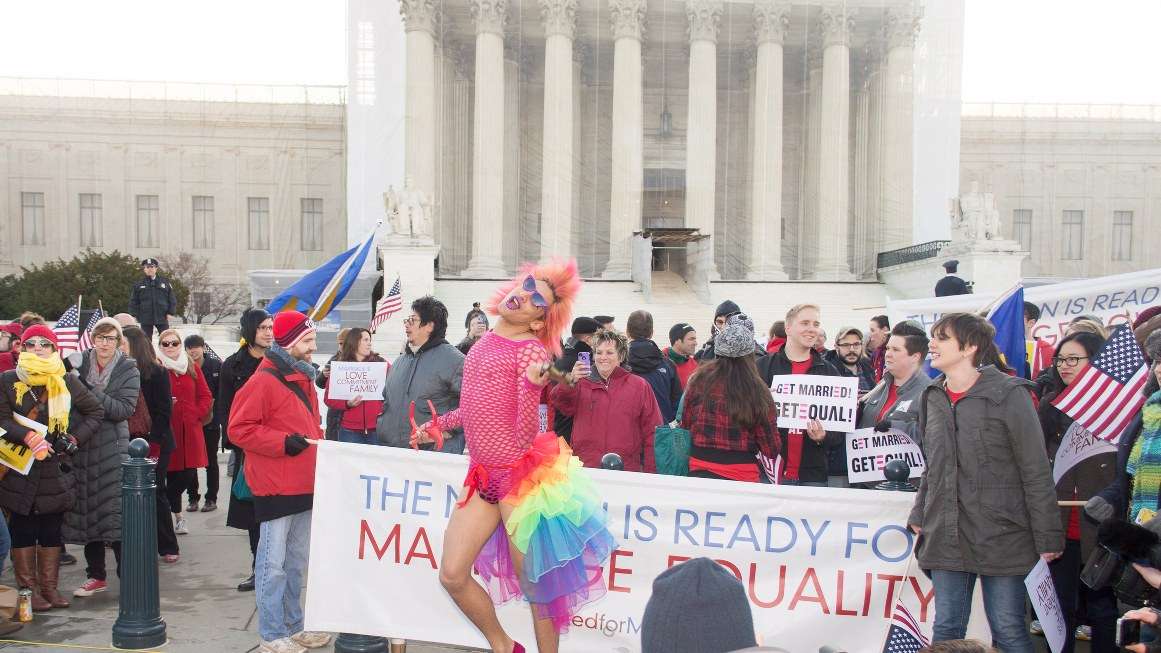
In the wake of the reversal of Roe v. Wade, Democratic (and at least one Republican) lawmakers are looking to make sure gay marriage recognition is protected from potential future Supreme Court decisions.
On Monday, Rep. Jerry Nadler (D–N.Y.) reintroduced the Respect for Marriage Act, a bill that would overturn the federal Defense of Marriage Act (DOMA), the 1996 law that defined marriage as being between one man and woman and forbid federal recognition of same-sex marriages in states that had legalized it.
The Respect for Marriage Act has been introduced before, as far back as 2009. The last time it was introduced was in January 2015, but just months later the Supreme Court ruled in Obergefell v. Hodges that the federal government and states must recognize same-sex marriages. DOMA remained on the books but was now unenforceable.
But in the recent Dobbs v. Jackson Women’s Health ruling that reversed Roe v. Wade, Justice Clarence Thomas wrote a concurrence that said he believed some other rulings were subject to rethinking based on the logic the majority used to justify Dobbs. Obergefell was one of those rulings Thomas referenced. Though no other justices signed onto Thomas’ dissent, he clearly intended to invite states to bring challenges to these precedents in order for them to be reconsidered.
If Congress were to pass the Respect for Marriage Act, the federal government would then legislatively recognize these marriages even should the Supreme Court subsequently strike down Obergefell (or United States v. Windsor, a 2013 decision that was a precursor to Obergefell and held that DOMA is unconstitutional).
Further, the Respect for Marriage Act would also require that states recognize same-sex marriages that take place in states where it hasn’t been legalized. This matters because, after the Obergefell ruling, several states left laws or state constitutional amendments blocking same-sex marriage recognition on the books. They currently don’t do anything because of the Supreme Court’s ruling, but they’re still there. Should Obergefell be overturned, gay marriages may stop being recognized in some states. The Respect for Marriage Act would require these states recognize legal marriages from other states.
The House bill (H.R. 8404) has 160 cosponsors currently, all Democrats. The Senate version of the bill will be introduced by Sen. Dianne Feinstein (D–Calif.). Sen. Susan Collins (R–Maine) has signed on as a cosponsor and appears at the moment to be the only Republican. It’ll take more Republican support to withstand the possibility of a filibuster. It could happen, but don’t hold your breath. Polling shows that as of 2021, even a majority of Republicans now support same-sex marriage recognition, and it is supported across all age groups. But we’re also currently not in a political environment where cooperation across the aisle is likely to happen (unless it involves increasing federal spending on government agencies and pork projects).
While I still believe it’s very unlikely that this current Supreme Court is interested in rethinking Obergefell, it’s nevertheless a good idea for lawmakers to affirmatively pass legislation to confirm same-sex marriage recognition. If the public wants same-sex marriage to be the law of the land, and polls indicate that’s genuinely now what most people desire, it’s supposed to be lawmakers, not the Supreme Court, who decide what the contours of it should be.







